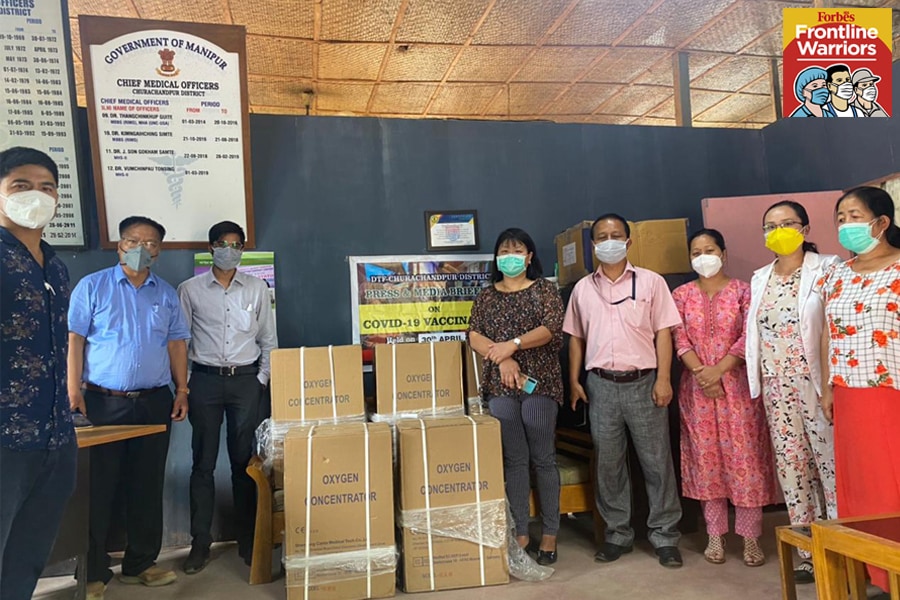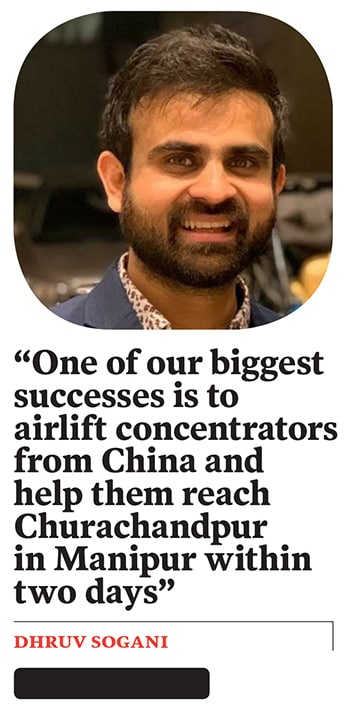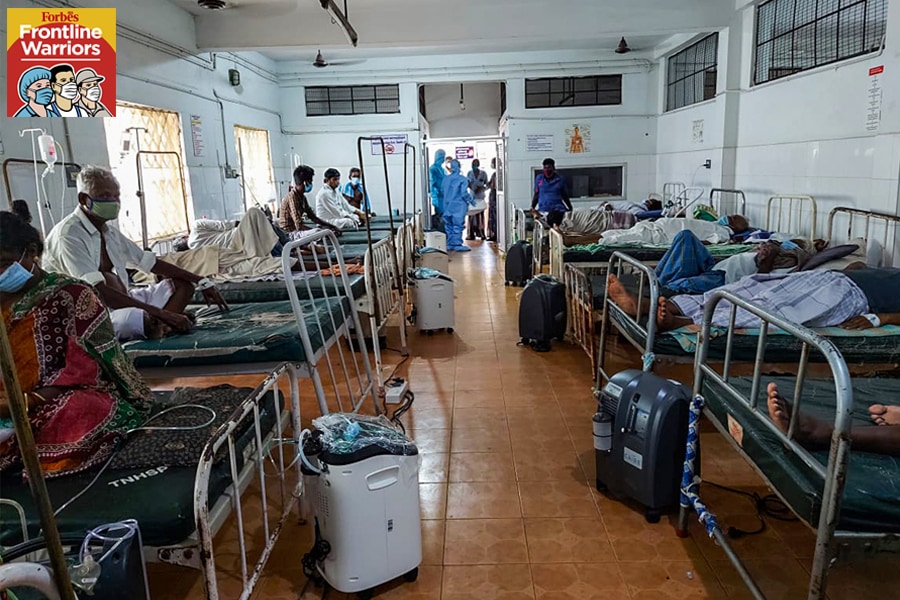
Old friends join hands to reach oxygen to forgotten corners
Medical Oxygen for All, a group of former BITS-Pilani batchmates from India and abroad, source and deliver oxygen concentrators to districts with limited infrastructure and zero limelight
 Ten oxygen concentrators and 3BiPAP machines being handed over to Dr Vumchinpau Tonsing (second from left), the chief medical officer of Manipur's Churachandpur district, with the support of Rahul Pandey (third from left), the additional district collector
Ten oxygen concentrators and 3BiPAP machines being handed over to Dr Vumchinpau Tonsing (second from left), the chief medical officer of Manipur's Churachandpur district, with the support of Rahul Pandey (third from left), the additional district collector
Around the time the second Covid-19 wave was sweeping across metros, Dhruv Sogani and a few of his former batchmates from BITS-Pilani sensed how its perils, now rippling through the villages, could soon surge into a tsunami. “Semi-urban, rural districts had scant medical facilities, yet weren’t being spoken about in the mainstream media,” says the 32-year-old founder of AlmaConnect, an alumni networking platform. “Five of us wanted to set that right. We wanted to address the oxygen shortfall, but in locations where oxygen concentrators either won’t reach, or land up so late that a tragedy would have unfolded already.”
Reaching out to districts under the radar, though, was far easier said than done, especially when three among the five lived in Australia and the rest in urban centres. So, the team—christened Medical Oxygen For All (MOfA)—decided to tap into its BITS network and connect with classmates posted as district collectors in remote regions. “The idea was to assess the on-ground situation, and operate through people who knew the district well and would deploy resources properly,” says Sogani. Their friends confirmed their worst fears: Rural India was staring down the barrel, and oxygen concentrators needed to be shipped urgently.
 MOfA zeroed in on four districts—Kothagudem in Telangana, Almora in Uttarakhand, Hooghly in Bengal and Jharkhand’s Hazaribagh—for its pilot run, and split itself into small teams with specific focus areas. By then, their numbers started to swell, as friends and friends of friends joined. “We began operating like a startup,” says Sogani. “Now we are a team of 25 working across time zones and over 55 WhatsApp groups.”
MOfA zeroed in on four districts—Kothagudem in Telangana, Almora in Uttarakhand, Hooghly in Bengal and Jharkhand’s Hazaribagh—for its pilot run, and split itself into small teams with specific focus areas. By then, their numbers started to swell, as friends and friends of friends joined. “We began operating like a startup,” says Sogani. “Now we are a team of 25 working across time zones and over 55 WhatsApp groups.”
Four people based in Australia were assigned the task of fundraising, another four with procurement, some others looked after logistics, while a fourth team mapped demand. “We had specific metrics of procurement too: Quality (only branded products), availability (time is of essence) and price.” Once orders started to go out, a monitoring team was put in place for post-deployment feedback.
One of MOfA’s first orders was placed with a supplier of oxygen concentrators in Delhi and had to be delivered to Agra. A friend of Sogani, who worked with a car selling platform, sent across one of their vehicles with a driver to pick it up and drop it at the destination. “Initially, we had to work out every single detail of the supply line,” he says.






